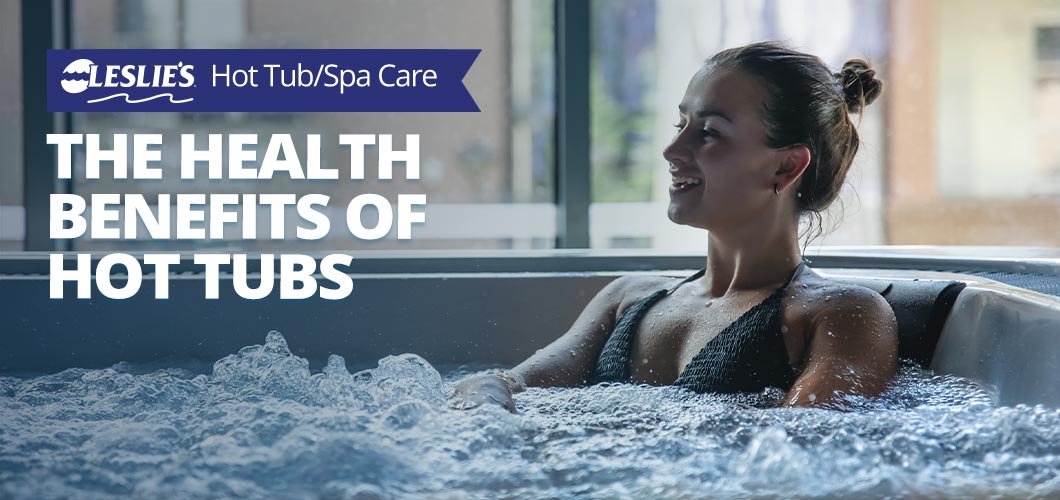
The Health Benefits of Hot Tubs
If you’ve ever been in a hot tub, you can probably recall how soothing and relaxing it was. But did you know that hot tub benefits go far beyond relaxation?
Incorporating hot tub usage into your daily routine can also help improve your general well-being. Regular sessions in your spa or hot tub may help reduce stress, ease pain, improve the quality of your sleep, and increase your flexibility. Some studies suggest a wider variety of health benefits, but more research is needed to determine the specifics of hot tub therapy with particular conditions. While only your doctor or a qualified medical professional will be able to tell you whether hydrotherapy — the use of water to relieve pain and treat various medical conditions — might be advantageous to you, here are some potential hot tub health benefits.
Hydrotherapy and Hot Tubs
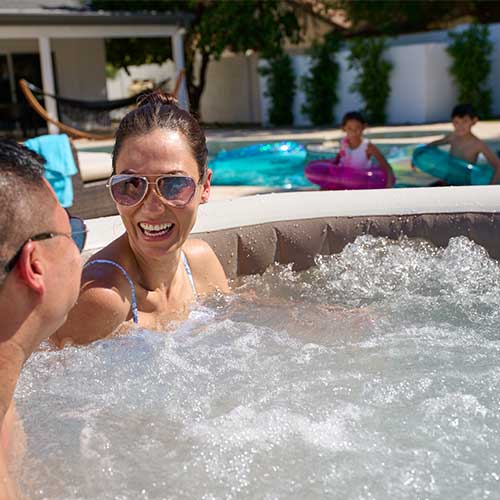
Using hydrotherapy treatments can be helpful when you want to treat and heal the body through a more natural approach. You can perform this therapeutic technique with water at any temperature. However, warm water has been shown to support the body in more significant ways when it comes to pain and inflammation. Hydrotherapy is a popular naturopathic option used in rehabilitation programs like physical therapy, exercise programs, and pain management. Nowadays, hot tubs have taken hydrotherapy and elevated it by pairing it with hydromassage. Using strategically placed jets and gentle yet effective water pressure, your body can experience a one-of-a-kind release.
Reduced Anxiety and Stress
Stress can take a major toll on the body. From fatigue and headaches to muscle tension and digestive issues, stress can make you feel rotten. One of the best ways to de-stress after a long, hard day is with a soak in your hot tub. The warmth of the water paired with massaging jets relaxes the body while helping ease stress symptoms.
Research from the National Library of Medicine shows that the use of hydrotherapy can provide a psychological and emotional boost, making it a powerful method to improve your well-being.
BONUS TIP: You can boost this stress-relieving effect even further with soft music, low lighting, or aromatherapy.
Improved Sleep
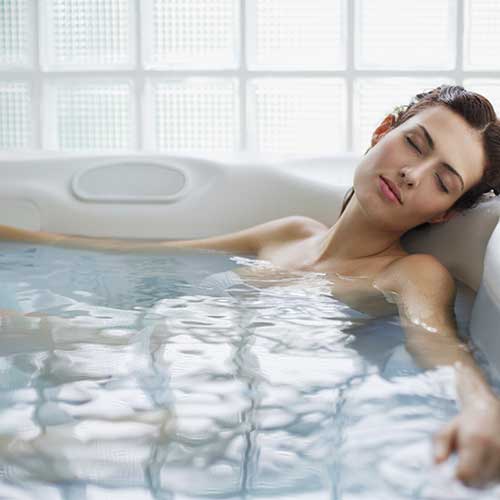
It’s estimated that 50 to 70 million Americans chronically suffer from a disorder of sleep and wakefulness, and adversely affecting health and longevity, according to research by the Institute of Medicine (US) Committee on Sleep Medicine and Research. Lack of sleep can thus increase feelings of stress, anxiety, frustration, and depression, while simultaneously reducing your ability to be productive. This can become a vicious cycle, as these same negative feelings can cause or aggravate many sleep disorders.
Using your hot tub on a regular basis can break that cycle and help you get to sleep. In a study of older female adults suffering from insomnia, the results indicated that soaking in hot water before bedtime leads to deeper, more restful, and more continuous sleep.
Simply soaking for a little while before you go to bed can help relax your nerves and muscles, making it easier to sleep. In your hot tub, you’re in your own little world, far from the stress and worry of the day. In addition, an evening soak is the perfect time to connect with your family. Spending quality time with your loved ones on a regular basis can help you tune out stressful distractions and focus on what matters most in your life. With peace of mind comes a peaceful sleep.
Muscle Relaxation
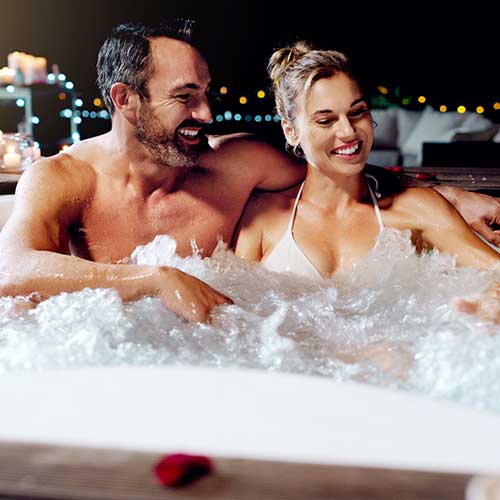
One of the best remedies for tired, achy muscles is immersive heat, especially when paired with massage. Regular hot tub use has been found to ease muscle spasms and stiffness, resulting in less pain overall. Enjoying hydrotherapy harnesses the healing powers of heat and massage, while the buoyancy of the water helps encourage full relaxation.
Research says that just 20 minutes immersed in hot water at around 98℉ dilates your blood vessels and improves circulation, which helps move inflammatory substances away from the joints, muscles, and tendons. Combining this heat with pulsating jets is the perfect recipe to relax your tight muscles and stimulate the release of endorphins, which are the body’s natural painkiller. This all contributes to the fact that hydrotherapy boosts recovery rates after exercise and reduces fatigue, as studies have shown.
Healthy Hot Tubbing Tips
Hot tubs can be a breeding ground for germs. Use only hot tubs that you know receive regular cleaning and maintenance with the appropriate levels of chemicals. A hot tubbing ritual can be safe and healthy if you:
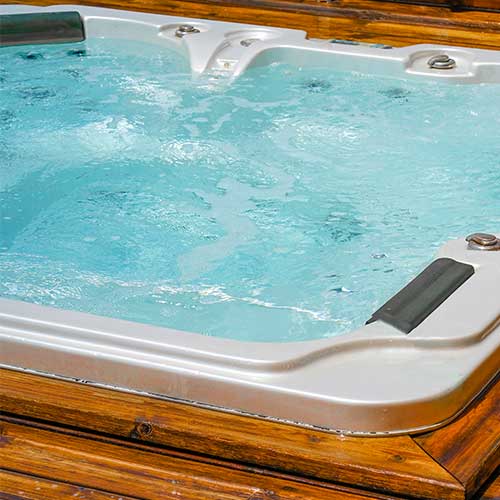
- Limit your hot tub time to 15–30 minutes.
- Don’t let the water temperature exceed 104℉. If you’re not sure, check the temperature with a tub thermometer. Enter slowly to avoid burns or shocking your body.
- Get out of the tub if you feel too hot, dizzy, or get a headache. These could be signs that you’re dehydrated or your blood pressure levels are abnormal.
- Install barriers like locking gates around home hot tubs. Use a latching cover to keep the hot tub clean and prevent unattended children from entering.
Whether it’s to soothe aches and pains, or calm a restless mind, the effect of warm water is quite powerful. People soak in a hot tub because it feels good, although more research is necessary to fully understand the benefits of hot water immersion. And it's relaxing. So, if you feel you are benefiting from a good, hot soak, by all means, soak away!
One more thing! While you now know the potential health benefits of a hot tub, the fun doesn’t stop there. Proper and consistent maintenance is critical if you want to fully take advantage of your hot tub. Check out Leslie’s Hot Tub Maintenance Checklist, and download the full list to keep for future reference.